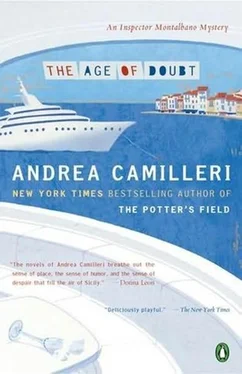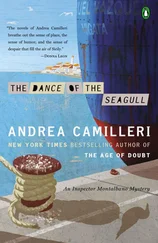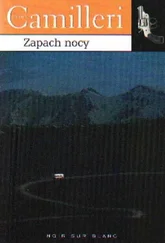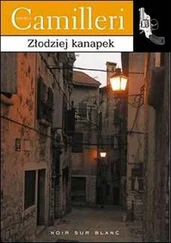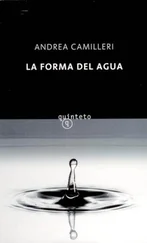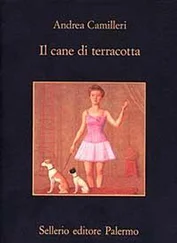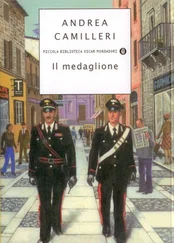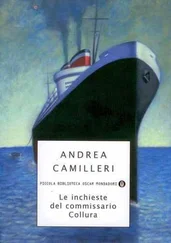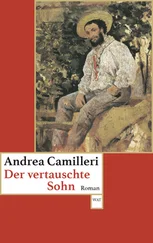“I’d never seen him before.”
“Do you know the cab driver who came to pick him up?”
“Of course! Pippino Madonia, co-op number 14.”
“Where’s the man’s overnight bag?”
“Still in his room,” said the manager.
“Let me have the key.”
“Would you like me to come with you?” the manager asked.
“No, thanks.”
Émile Lannec and the sea.
***
The room, which was on the fourth floor, was in perfect order. The bathroom, too. It had a small balcony from which you could see the sea and, to the left, half of the port. It was so clean, in fact, that it seemed as if no one had ever stayed in it. The little suitcase, which was slightly bigger than an overnight bag, sat unopened atop the baggage stand. Montalbano opened it.
Inside were a shirt, a pair of underpants, and a pair of clean socks. In another compartment were the dirty garments the man had taken off.
What Montalbano hadn’t expected to find in it was a large pair of binoculars. He picked them up, looked at them carefully, then went out onto the balcony, pointed the binoculars at a rowboat that was barely larger than a dot, then zoomed in.
They had extraordinary powers of magnification. The little dot immediately turned into the face of one of the fishermen on the little boat.
The inspector then pointed the lenses towards the port.
At first he didn’t understand what he was seeing. Then he realized he was looking at the deck of the Vanna -more specifically, the door that led below decks, to the mess room.
He went back inside and emptied the little suitcase onto the bed. There wasn’t a single piece of paper, document, ticket-nothing whatsoever. He put the binoculars back inside, closed it, grabbed the bag, went down to the lobby, and turned it over to the manager.
“Keep this in your depository.”
At the cab co-op, the moment the inspector told them who he was, they sent him to the office of the secretary, Signor Incardona, a man with the face of an undertaker, a goatee, and a tedious air about him.
“I urgently need to talk to one of your associates: Madonia, cab number 14.”
“Pippino is an honest man,” Incardona said defensively.
“I don’t doubt that for an instant, but I-”
“Can’t you just talk to me?”
“No.”
“I’m sure he’s working at this hour, and I don’t think it’s such a good idea to disturb him right now.”
“I, on the other hand, think it’s an excellent idea,” said Montalbano, who was starting to feel his cojones go into a spin. “Shall we settle this here or would you prefer to talk about it at the police station?”
“What is it you want?”
“Are you in direct communication with him?”
“Of course!”
“Then check in with him and let me know where he is at this moment.”
He said it in such a tone that the other man got up without saying anything and left the room. He returned a few minutes later.
“At this moment he’s at the taxi stand in front of the Bar Vigàta.”
“Tell him to wait for me there.”
“And what if he gets a fare in the meantime?”
“Tell him to make himself unavailable. I’ll pay for whatever fare he loses.”
***
There were four cabs waiting at the stand. The moment Montalbano arrived, the four cabbies, who’d been standing around shooting the breeze, turned and eyed him with curiosity. Apparently number 14 had spoken to his colleagues.
“Which one of you is Madonia?” the inspector asked, leaning out of his car window.
“I am,” said a portly man of about fifty without a hair on his head.
Cool as a cucumber, Montalbano parked his car in one of the empty spaces reserved for taxis.
“You can’t park there,” said one of the cabbies.
“You don’t say!” the inspector said, feigning surprise.
He opened the door to cab number 14 and sat down in front, on the passenger’s side. The car’s owner, looking flustered, got in on the driver’s side.
“Start ’er up and let’s go,” said Montalbano.
“Where to?”
“I’ll tell you once we get going.”
As soon as they drove away from the stand, Montalbano started talking.
“Do you remember getting a call from the Bellavista Hotel a few mornings ago to pick up a fare?”
“Inspector, there’s not a morning goes by when they don’t call me to go there!”
“This particular client was about forty and athletic, a good-looking guy who-”
He remembered the passport he had in his pocket. Pulling it out, he put it under the cabbie’s nose.
“The French guy!” he exclaimed upon seeing the photo.
“So you remember him?”
“Of course!”
“Why do you say that?”
“Because he didn’t know where he wanted to go. Or, at least, that’s how it seemed to me.”
“Explain.”
“First he had me take him to the cemetery. He got out, went in, stayed there about ten minutes, and then came back to the car. Then he had me take him to the north entrance to the port, got out, disappeared for about ten minutes, and came back. After that, he had me drive him to the train station, where he got out, was gone for about ten minutes, then got back in the car. Finally, he told me to take him to the Pesce d’Oro restaurant, where he paid me and left.”
“Did you notice whether he went into the restaurant?”
“Nah, when I left he was just standing there, looking around.”
“What time was it?”
“A little after twelve-thirty.”
“All right. I want you to retrace the exact route you took that morning, then drop me off at the Pesce d’Oro. Actually, no. Let’s go back to the taxi stand. I’ll take my car and follow you.”
***
He paid the man his fare, went and parked his own car, then returned to the spot where the cabbie had dropped off Lannec. Montalbano was convinced that all the twists and turns the Frenchman had made the driver go through had a specific purpose, that of making it impossible for anyone to know where he was actually going. A waiter stood in the doorway to the restaurant, inviting him to come in. And the inspector yielded to the temptation.
He went inside. The place was completely empty. Maybe it was too early. He sat down at the first table he came to and opened the menu.
The dishes looked promising. But writing is one thing, and cooking another.
The waiter approached the table.
“Have you decided?” he asked.
“Yes. But first I must ask you for some information.”
He pulled the passport out of his pocket and handed it to the man. The waiter took a long look at the photo. Then he asked:
“What would you like to know?”
“If this man came and ate here a few days ago.”
“No, he didn’t come inside. But I did see him.”
“Tell me everything.”
“Why, may I ask?”
The man’s tone had changed and the smile had disappeared from his face.
“The name’s Montalbano. I’m an inspector with the-”
“Good God, yes! So you are! Now I recognize you!”
“So, please tell me…”
“I was standing outside the door, like I was doing just now, when a cab pulled up and this man got out. The cab drove off and the passenger just stood there in front of the curb without moving. He looked like he didn’t know where to go. So I went up to him and asked him if he needed any help. And you know what he said?”
“No.”
“That’s exactly right. He said no. A minute later, he started walking, turned right, and after that I didn’t see him anymore. And that’s the story. Now, what can I get you to eat?”
***
Damn the moment he’d decided to eat at that stinking restaurant! Stinking and expensive to boot! The cook must have been a terminal drug addict or a criminal sadist bent on exterminating humanity. The food was overcooked, burnt, flavorless, or oversalted. The guy didn’t get a single thing right, not even by accident.
Читать дальше
